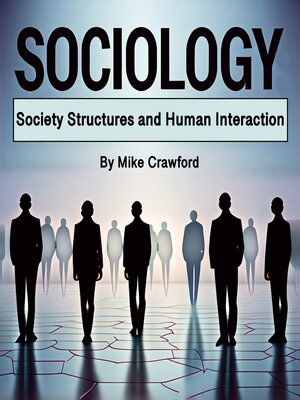
Sign up to save your library
With an OverDrive account, you can save your favorite libraries for at-a-glance information about availability. Find out more about OverDrive accounts.
Find this title in Libby, the library reading app by OverDrive.



Search for a digital library with this title
Title found at these libraries:
| Library Name | Distance |
|---|---|
| Loading... |
Sociology is the scientific study of society, human behavior, and social interactions. It examines how individuals and groups influence one another, the structures that shape social life, and the cultural norms that govern behavior. Sociology provides insights into the complexities of human relationships, revealing patterns in how people interact, organize themselves, and respond to societal changes. By analyzing these patterns, sociologists seek to understand and explain the forces that shape societies, from historical developments to contemporary issues.
The importance of sociology lies in its ability to uncover hidden social mechanisms that influence daily life. It helps individuals understand how social structures—such as family, education, and politics—affect opportunities, behaviors, and beliefs. This field of study also provides tools for critically examining societal norms, questioning inequalities, and advocating for social change. In an increasingly interconnected world, sociology offers valuable perspectives on globalization, migration, and cultural diversity, highlighting both the challenges and benefits of social transformation.
Sociology encompasses various theoretical perspectives that guide its analysis. The functionalist perspective views society as a system of interconnected parts, each contributing to social stability. It emphasizes the roles institutions play in maintaining order and continuity. The conflict perspective, on the other hand, focuses on power struggles and social inequalities, arguing that societies are shaped by competition for resources and dominance between different groups. The symbolic interactionist perspective examines social interactions at the micro-level, emphasizing the meanings individuals attach to their experiences, symbols, and communication. Each of these perspectives offers a distinct way of understanding society and human behavior.







